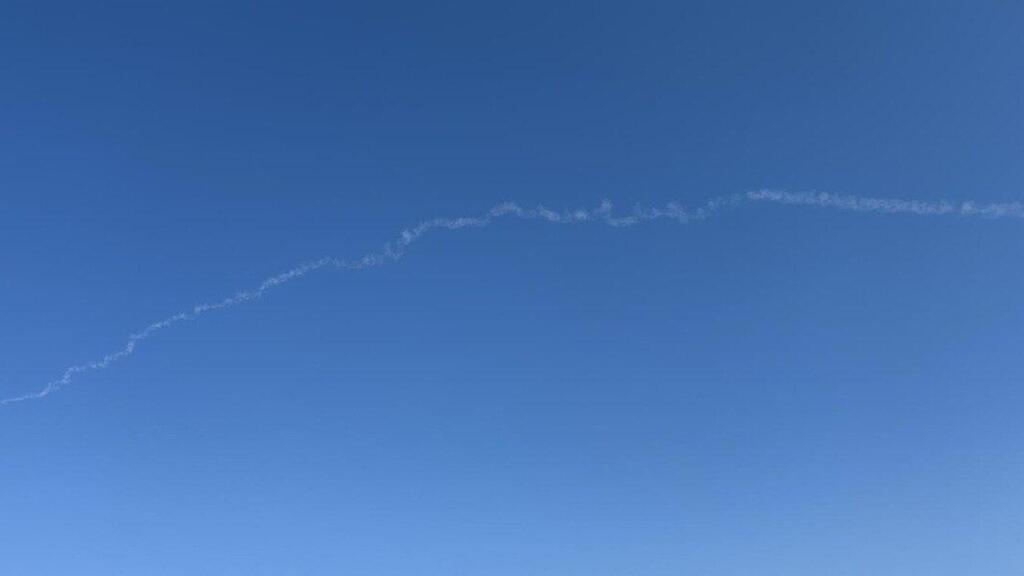Getting your Trinity Audio player ready...
For the first time since the cease-fire in the north took effect on November 27 last year, the IDF intercepted an unmanned aerial vehicle launched toward Israel.
"The Air Force intercepted a reconnaissance UAV belonging to the Hezbollah terrorist organization," IDF spokesperson said on Thursday, adding: "We will not allow Hezbollah’s terrorist activities in Lebanon and will act to eliminate any threat to the State of Israel and its citizens."
The original cease-fire agreement stipulated that IDF troops would withdraw from southern Lebanon after 60 days. However, on Sunday, the White House announced that the agreement had been extended until February 18, allowing IDF troops to remain in Lebanese territory until that date. The Lebanese newspaper Al-Akhbar, closely associated with Hezbollah, reported this week that the terrorist organization was not a party to the negotiations for extending the cease-fire in Lebanon and even rejected requests to prolong the deadline.
During the additional three weeks in which, according to the agreement, IDF troops will remain in southern Lebanon, the military plans to carry out a range of operations to destroy terrorist strongholds and retrieve weapons hidden by Hezbollah, especially in the eastern sector bordering the Upper Galilee region.
Get the Ynetnews app on your smartphone: Google Play: https://bit.ly/4eJ37pE | Apple App Store: https://bit.ly/3ZL7iNv
Earlier this week, after the original 60-day period ended, Hezbollah attempted to provoke confrontations by sending hundreds of operatives waving the organization’s flags to nearby villages along the border, trying to engage with IDF soldiers. A senior military official, still operating with his troops in southern Lebanon, told Ynet this week: "Until the Lebanese army fulfills its responsibilities and demonstrates sufficient control over the area, we will not recommend transferring control to them."
IDF operating in southern Lebanon
He added: "In villages not adjacent to the border in the western and central sectors of southern Lebanon, we have returned control to the Lebanese army. But in villages near us and in the border fence area along its entire length, we are still present."
He emphasized that no one in the Israeli military trusts the Lebanese forces to ensure the safety of the residents who have already started returning northward. "The responsibility for the security of our residents lies with Israeli forces, certainly not with the Lebanese army or any other foreign force," he said.






